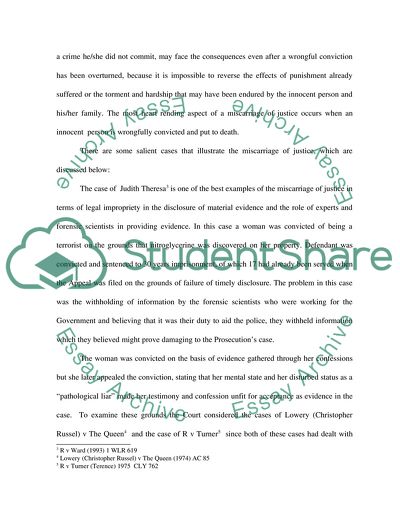Cite this document
(“The Miscarriage of Justice Essay Example | Topics and Well Written Essays - 2500 words”, n.d.)
Retrieved from https://studentshare.org/law/1535732-the-miscarriage-of-justice
Retrieved from https://studentshare.org/law/1535732-the-miscarriage-of-justice
(The Miscarriage of Justice Essay Example | Topics and Well Written Essays - 2500 Words)
https://studentshare.org/law/1535732-the-miscarriage-of-justice.
https://studentshare.org/law/1535732-the-miscarriage-of-justice.
“The Miscarriage of Justice Essay Example | Topics and Well Written Essays - 2500 Words”, n.d. https://studentshare.org/law/1535732-the-miscarriage-of-justice.


